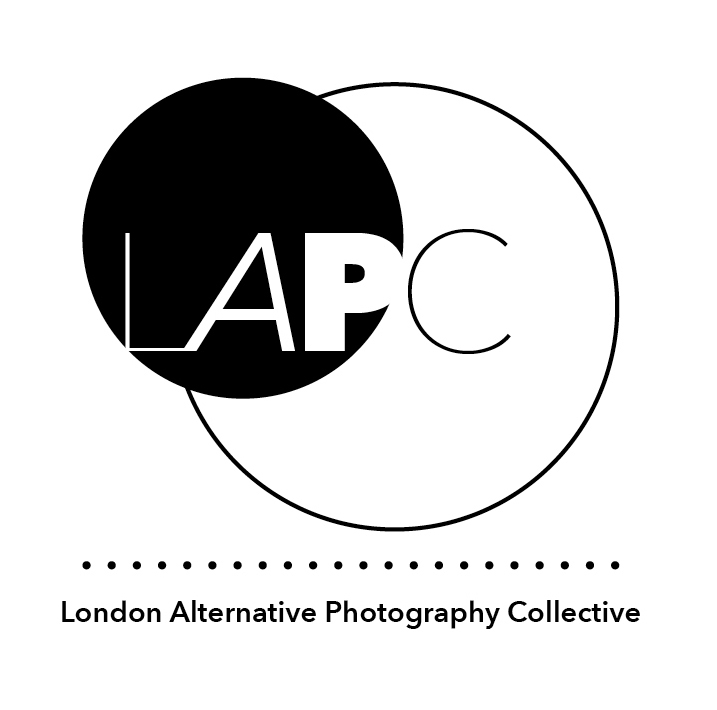Sun, 31 January 2021
16:00 – 19:45 GMT
Tickets.
The London Alternative Photography Collective invite you to their 2021 Symposium which discusses environmental considerations and approaches to working with experimental cinema. We will explore developments in non-toxic photochemical processes, the use of celluloid in a sustainable filmmaking practice and the relationship between the garden and the darkroom. Throughout, discussing the aesthetic and visual implications of these techniques, processes and materials.
Panel of speakers:
General Treegan (aka Andrés Pardo)
Dagie Brundert
Joanna Mayes
Kim Knowles
Phillip Hoffman
Ricardo Leite
Chaired by Hannah Fletcher
General Treegan aka Andrés Pardo runs a film lab in Mexico called Curioso Lab. It is a space for photochemical exploration, specialising in cinematography. His research focuses on non-traditional development processes, most recently he has been working on an 100% home made film developer for black and white film. Based on clementine peels and potash, he has labeled it as ‘SIMPLE’ developer. He is in the process of studying the performance and possibilities of this developer of 16mm and 35mm film.
Dagie Brundert is an artist from Berlin, who has worked with super 8 film for almost half of her life – short films, experimental films – and for about a decade now she has developed her films using eco friendly materials.
Joanna Mayes is a film artist who explores the experience of being in a location at a particular time through the medium of film. Bringing her experience of musical improvisation into her practice, Joanna opens her work up to chance through hand processing and the use of organic materials, to create short film-poems that reverberate between abstraction and control. She represents place through a layering of approaches to materiality: analogue film responds to the light in that place and time, physical outcomes are often charged with atmosphere from the site through use of materials of the locality, such as seawater for processing and lichen & berries for tinting the film.
Kim Knowles lectures in Alternative and Experimental Film at Aberystwyth University in Wales and curates the Black Box experimental strand at the Edinburgh International Film Festival. Her recent monograph Experimental Film and Photochemical Practices (Palgrave Macmillan, 2020) assesses the contemporary relevance of film in the digital era and draws on theories of new materialism, ecocriticism and posthumanism. She has published widely on contemporary and historical forms of avant-garde filmmaking, as well as crossovers with other arts such as photography, architecture, poetry and dance. She is co-editor (with Marion Schmid) of the forthcoming collection Cinematic Intermediality: Theory and Practice (Edinburgh University Press, 2021).
Philip Hoffman has been the artistic director of the Independent Imaging Retreat (Film Farm) since 1994; a 1 week workshop in artisanal filmmaking in Mount Forest, Ontario. Currently Hoffman teaches in the Cinema and Media Arts Department at York University and his new film, vulture, uses several processing methods including flower/plant hand-processing. The film received the Kodak Cinematic Award at the Ann Arbor Film Festival in 2019.
Ricardo Leite is a Portuguese film director, working mainly in Experimental and Documentary genres. Has been working in biodegradable and non toxic chemistry processes since 2012, and presented his hydrogen peroxide / citric acid bleach in reversal caffenol process in TIE Festival in colorado in 2013. The majority of his analog films are hand-developed in his laboratory.
Hannah Fletcher is a London based artist, working with cameraless photographic processes, Co-director of London Alternative Photography Collective and a facilitator of sustainability within the arts. She initiated The Sustainable Darkroom, an artist-run research, training and mutual learning programme, to equip cultural practitioners with new skills and knowledge to develop an environmentally friendly photographic darkroom practice. Taking its form in publications, residencies, workshops, talks, symposiums and training sessions. She intends to lead a movement in challenging the environmental impact and sustainability of darkroom practices.
Header Image: General Treegan

